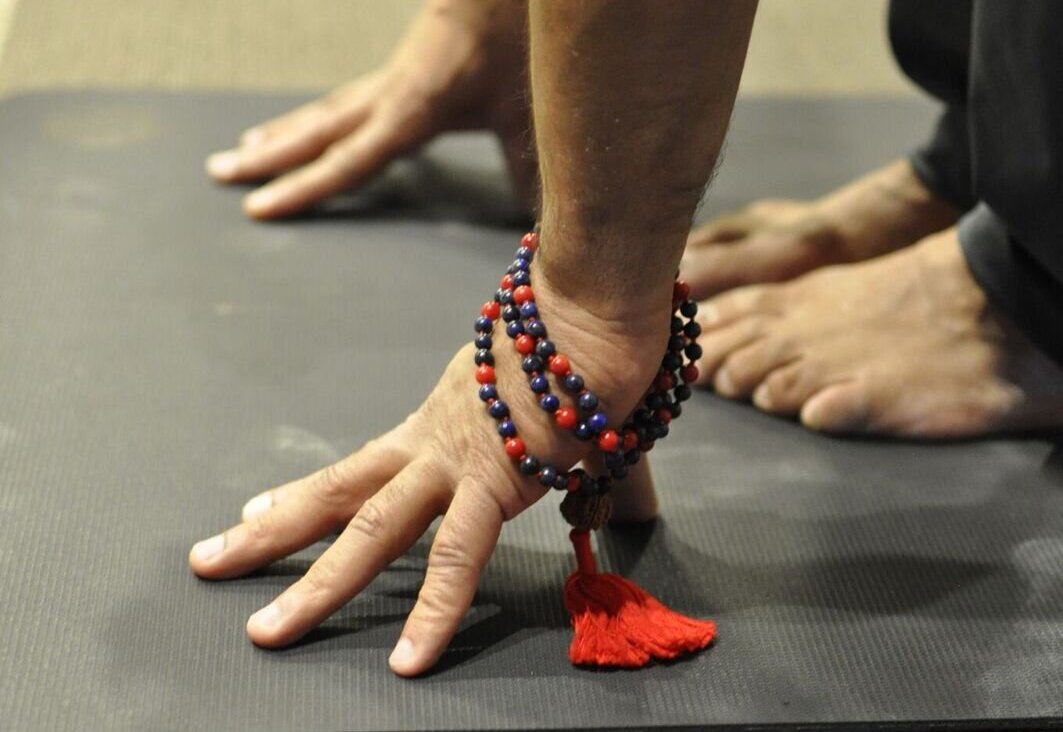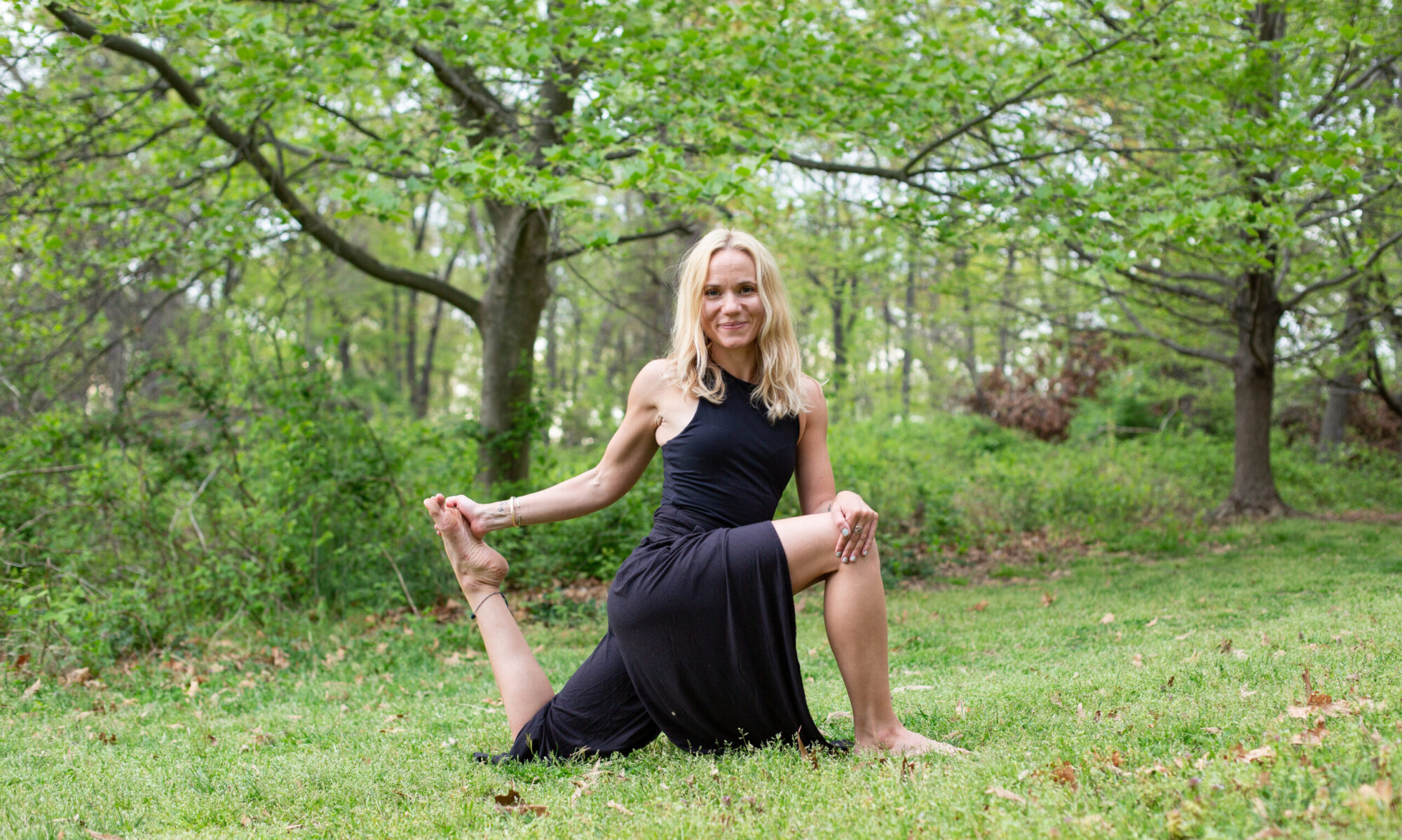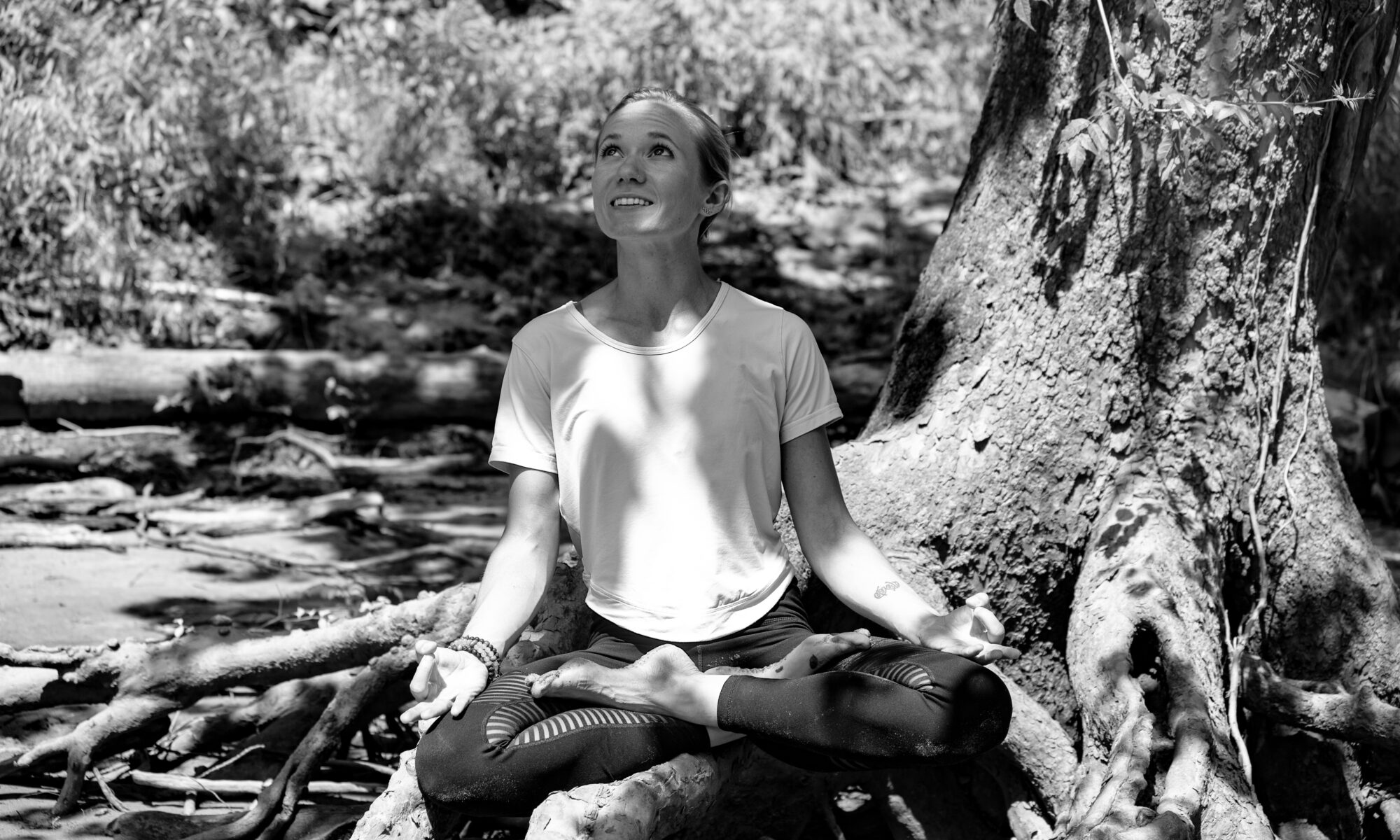Amy was first introduced to the practice of Mindful Yoga Therapy (MYT) through a training with founder Suzanne Manafort in April 2015. It just so happened that the training took place just two weeks after experiencing her own trauma—a severe car accident which threatened to end her career as a yoga teacher just three months after leaving her past life in non-profits to pursue this long-time dream.
Amy says of that time in her life, “my body was broken, but the real damage was to my mind. For my entire adult life, I’ve struggled with anxiety and the accident just served to turn up the volume. It got really loud. While anxiety sucks, I am grateful it was at such a peak when I underwent the training because I was able to not only cognitively understand why MYT works, but also feel the difference it made in my own body and mind.”
MYT is a clinically tested and empirically informed program developed to help people deal with trauma, especially Veterans suffering from post-traumatic stress (PTS). Using a variety of mindfulness-based modalities — breath-work a.k.a. pranayama, movement a.k.a. asana, and meditation — MYT turns down the volume on the symptoms of PTS like anxiety, depression, and insomnia to name a few. The approach is simple: support precedes action.
Step one in MYT is to teach people pranayama techniques. From there, the nervous system starts to calm and the world outside the confines of one’s mind begins to open up. Movement, or asana, comes in next to help further free the body from the grips of a mind constantly churning on memories and thoughts — most often negative and self-blaming in nature. Once the body and mind, eased by pranayama and asana, feel steady and pliable, students can start to develop a meditation practice and experience the power of stillness and observation. The keys to every step in this process for Veterans (or anyone with a piqued nervous system really) are safety, predictability, and control. When you suffer from depression or anxiety there is nothing worse than feeling overwhelmed, surprised, or out of control. With those fundamental values in place it becomes possible to learn how to pay attention to the present moment and maintain an attitude of acceptance and non-judgment — aka to develop a more mindful perspective on and approach to life.
Amy has guided nearly a hundred students through this program in various forms. The results are inspiring and reinforce the importance of this “alternative” approach to help heal people affected by PTS and its all-consuming symptoms.
According to Amy, “for me as a teacher, the best part of the MYT approach is seeing how it helps people elicit tools and techniques from within themselves to heal their mind, body, and heart. These tools are already within each of us — we just have to learn how to help bring them out into the open and use them in healthy ways to cope with stress. It’s so empowering!
Whenever this work feels too daunting, I remind myself that every day more than 22 Veterans take their own lives in large part because they are not receiving the support they need to heal the scars from their service to our country. And that’s just the Veterans! First responders, victims of natural disasters, victims of sexual abuse, those suffering with eating disorders, and beyond all stand to benefit from these tools as well. The need is abundant.”
If you’re interested in learning more about teaching or getting involved with at-risk communities visit http://mindfulyogatherapy.org/.
If you or someone you know is struggling with anxiety, depression, life transitions, chronic stress, or any other kind of trauma and want to see if the MYT approach might help, email Amy at [email protected] to learn more.



